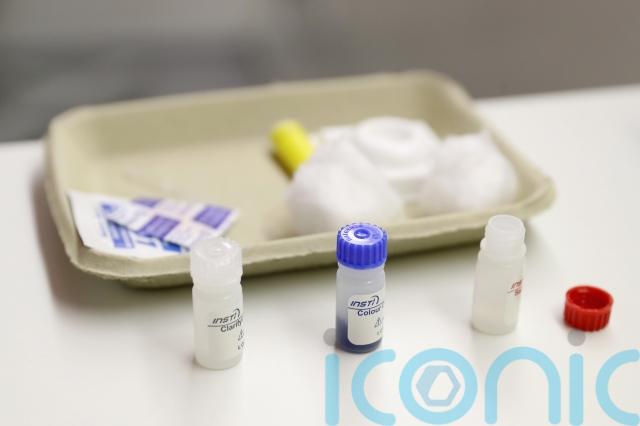
Scotland is making “good progress” towards the goal of eliminating transmission of the HIV virus by 2030, a new report has said.
It comes after there were 125 first-time diagnoses of the virus in 2024 – with this total down from 225 in 2017.
Of these new diagnoses, less than one in five (19%) were thought to have been acquired in Scotland.
This meant the number of newly recorded HIV cases acquired in Scotland fell from 37 in 2023 to 24 last year, Public Health Scotland figures showed.
The Scottish Government has already set the national target of eliminating new HIV transmissions by the end of the decade.
Public Health Scotland said: “Scotland is making good progress towards HIV transmission elimination targets.”
As of December 31 last year there were an estimated 6,467 people in Scotland living with HIV.
Of the 6,079 who have been formally diagnosed with the virus 91% have received antiretroviral therapy (ART) between July 2023 and December 2024.

Meanwhile the figures showed that 2,472 people were given PrEP (pre-exposure prophylaxis) medication for the first time in 2024.
That averaged out at 206 such cases a month – the second highest total ever of people being given the treatment, which can prevent HIV infection.
The number of people receiving PrEP was only higher in 2023, when it was 216 per month.
Public health minister Jenni Minto said: “I welcome this report which highlights significant progress towards our goal of eliminating HIV transmission in Scotland, including a reduction in first time diagnoses and wide-ranging work to prevent new transmissions.”
She added: “Since its introduction in 2017, Pre-Exposure Prophylaxis (PrEP) has played a vital role in preventing HIV in Scotland.
“As one of the first countries in the world to offer this free preventative treatment, thousands have benefited, contributing to a significant reduction in new diagnoses, particularly among gay and bisexual men.”
Ms Minto said Scotland was now rolling out opt-out testing for HIV and hepatitis B and C in emergency departments, with NHS Grampian joining Lothian and Greater Glasgow & Clyde in the first phase of this.
And she stated: “Alongside funded support for patients, we are working closely with NHS Boards, communities and the third sector to overcome challenges and ensure Scotland leads the way in ending HIV transmission by 2030.”
Subscribe or register today to discover more from DonegalLive.ie
Buy the e-paper of the Donegal Democrat, Donegal People's Press, Donegal Post and Inish Times here for instant access to Donegal's premier news titles.
Keep up with the latest news from Donegal with our daily newsletter featuring the most important stories of the day delivered to your inbox every evening at 5pm.